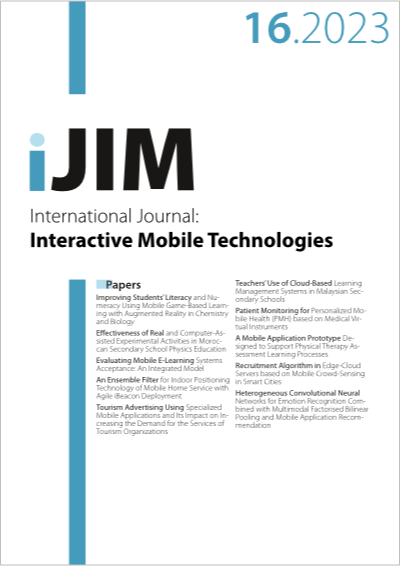Effectiveness of Real and Computer-Assisted Experimental Activities in Moroccan Secondary School Physics Education
DOI:
https://doi.org/10.3991/ijim.v17i16.39267Keywords:
Real experimental approach, Computer-assisted experimental activities , Moroccan secondary education, Physics learningAbstract
Experimental activities are widely recognized as an essential pedagogical tool in physics education that enables students to learn fundamental physical concepts. Experimentation sets physics apart from other disciplines by motivating learners to acquire knowledge, methods, scientific attitudes, and manipulative skills. Most current research focuses on the importance of conventional experimental work in the learning process or the contribution of new technologies to this process without pinpointing the experienced limitations hindering the two tools from achieving the pedagogical objectives for which they were originally designed. To gain a better understanding of what these issues are, we have performed the survey presented in this paper. First, the analysis investigated the challenges that impede the experimental approach from playing its vital role in the Moroccan education system and evaluated the efficiency of this approach in achieving its original pedagogical objectives. In doing so, the study indicates that the majority of Moroccan secondary physics teachers do not achieve the required rate of experimental activities due to several challenges, including the need for coaching and training, the lack of coordination between decision-makers and practitioners regarding the practical use of scientific laboratories, a shortage of necessary materials, and a lack of maintenance and repair of laboratory equipment. Thus, we conclude this paper by providing several solutions, implications, and limitations as potential directions for future research.
Downloads
Published
How to Cite
Issue
Section
License
Copyright (c) 2023 Youssef Menchafou, Morad Aaboud, Mohammed chekour

This work is licensed under a Creative Commons Attribution 4.0 International License.



